There’s been a great deal of activity in the run-up to this month’s Autumn Statement as various organisations plead their cases, with cancellation of January’s fuel duty rise at the top of the agenda.
In an open letter to Minister for Business and Enterprise, Michael Fallon MP, PRA chairman Brian Madderson said petrol retailers were being "hit by wave after wave of regulation", which threatened businesses at one of the worst economic times for small business owners in the UK.
"Government should be focusing on restoring our economic fortunes this autumn and therefore it is vital that misguided policies are rejected," he said. "Last year 400 forecourts closed across the UK (Energy Institute) and our worry is that with the implementation of yet more onerous and ill-considered regulation, this closure trend will continue unabated."
Reform payment system
Specifically, PRA called for government to focus on restoring economic fortunes by reforming the payment system for fuel duty so that it is fairer for motorists. This would also help small retailers who are facing major declines in sales of petrol, which they rely on as a considerable part of their income.
In addition, Madderson asked that the government work with retailers to crack down on illicit tobacco trade which robs legitimate businesses and benefits criminals. PRA also called on the government to scrap regulations that will only further benefit the black market for tobacco and rob legitimate retailers of cigarette sales, which can account for up to 50% of their total shop revenue.
Meanwhile, pressure on the Treasury to cancel the 3ppl fuel duty increase planned for January was ramped up as fuel campaigners gathered at the House of Commons on November 21 to tell MPs about the negative impact of such a rise.
MPs heard first hand from supporters of the FairFuelUK campaign how high fuel prices and fuel duty were affecting consumers and businesses. The event was chaired by Robert Halfon MP and addressed an audience of MPs from all political parties.
Earlier in the month, Labour’s motion to delay the fuel duty rise from January to April was defeated by 284 votes to 234 following a debate in the House of Commons.
Cathy Jamieson, Labour MP for Kilmarnock and Loudoun, led the debate calling on Chancellor George Osborne to cancel the rise in fuel duty "at least until next April".
She said families were feeling the squeeze, low and middle-income families were hardest hit, prices were rising higher than wages, small businesses were struggling, and that the economy was still fragile all of which made it exactly the wrong time to hike up fuel costs.
After much debate, Conservative MP Robert Halfon said he had three concerns about the Labour motion: "First, it is a non-binding motion it is just gesture politics," he said. "My constituents care about the price of petrol, not the politics. Secondly, the only way that we can stop the petrol tax is through the Autumn Statement on December 5. That is how it has been done in the past few years.
"Thirdly, we need a long-term settlement for cheaper petrol," he added. "The motion proposes a three-month oil rush, which would lead to motorists being hammered with a 7ppl tax rise in April 2013. The only way to get the long-term settlement is to work constructively with the government and look at reform and how we can permanently lower fuel duty."
Ultimately David Gauke, Exchequer Secretary of the Treasury, urged the House to reject the motion. He said: "We have recognised the impact that high pump prices are having on motorists, families and businesses. The last government had no credible plan to deal with the debts that they created and no credible plan to support motorists, but we have listened and responded.
"We have cut fuel duty, we have scrapped the fuel duty escalator, we have ensured that there will be no increase in fuel duty this year, we will have kept fuel duty frozen for 21 months, we will continue to support motorists with our fair fuel stabiliser, and we have tackled tax avoidance. We have taken action not only on fuel duty, but on council tax and on income tax."
The Freight Transport Association hailed the Parliamentary debate as confirmation that fuel duty has now become a mainstream political issue, and welcomed the suggestion that the Chancellor may be about to cancel the increase in fuel duty planned for New Year’s Day.
fuel duty: what they’re all saying
l Brian Madderson, chairman of the Petrol Retailers’ Association: "The government must cancel this proposed January increase. To defer would mean that it could combine with the planned duty rise on April 1, 2013, to push pump prices up by 7ppl and that would really wreck any economic recovery, hammer inflation and hit household budgets very hard. Such a rise would be without parallel since fuel taxation commenced."
l Road Haulage Association chief executive, Geoff Dunning: "We have to see this issue tackled as a matter of extreme urgency. Let’s see a cut in fuel duty and free up the money in people’s pockets. At a time when so many are suffering financially, this is a sure-fire way of getting the wheels of the economy moving."
l Alex Jackman, head of policy at the Forum of Private Business: "Of all the costs to business, fuel hits the largest number of our members. We want to see the Chancellor freezing fuel duty for at least a further six months, and commit to a fair-fuel stabiliser before the end of this Parliament."
l FTA managing director policy and communications, James Hookham: "In the run-up to the Autumn Statement it is vital that every MP is aware of what’s at stake from an increase in fuel duty from January. The Chancellor should not only postpone the increase in January, but he should in fact reduce fuel duty by 3ppl and kick-start the economy."
survey shows retailers’ gloom
A PRA survey of petrol retailers last month revealed that:
l 56% see no progress in the UK economy compared to last year.
l 62% believe that the illicit trade in tobacco products is having a negative impact on their business.
l 88% believe that a plain packaging policy would make it easier for forgers to produce counterfeit cigarettes.
l 65% believe plain packaging for tobacco products would negatively impact their businesses.
l 73% believe the government has gone too far with tobacco regulations.




















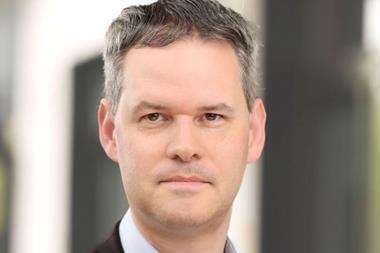



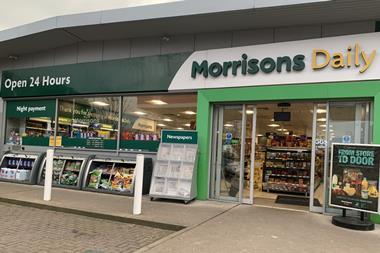
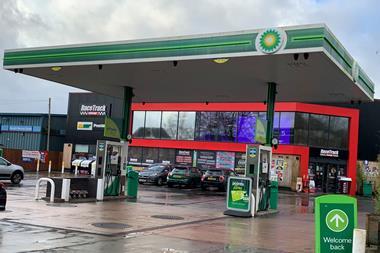

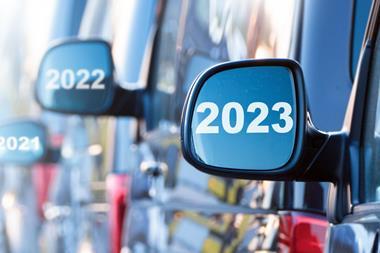
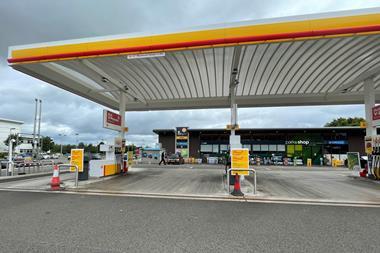
No comments yet